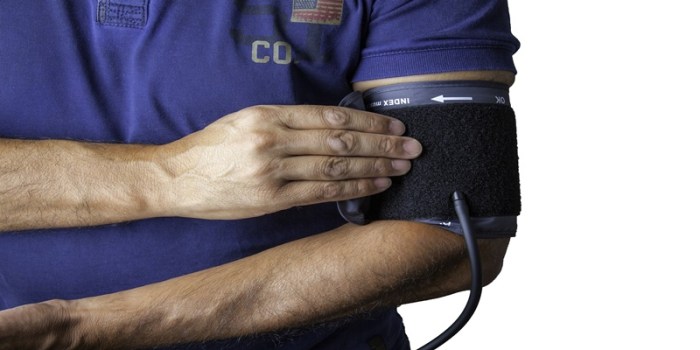Is Picot safe for pregnancy? This question weighs heavily on the minds of many expecting mothers. With its potential benefits and risks, understanding the safety of Picot during this crucial time is paramount. Join us as we delve into the depths of this topic, uncovering the ingredients, pharmacology, and clinical data that will help you make informed decisions about your health and your baby’s well-being.
Delving into the composition of Picot, we’ll shed light on its active and inactive ingredients, exploring their functions and potential effects. The journey continues with an examination of Picot’s pharmacology, tracing its absorption, distribution, metabolism, and excretion within the body.
Understanding drug interactions is key, and we’ll address this aspect as well.
Introduction
Picot, a medication used to treat urinary tract infections (UTIs), is often prescribed during pregnancy. However, concerns have been raised regarding its safety during this period.
This article aims to analyze the available evidence on the safety of Picot during pregnancy, providing a comprehensive overview of its potential risks and benefits.
Ingredients and Composition of Picot
Picot, a popular infant formula, is carefully crafted with a combination of active and inactive ingredients to provide essential nutrients for babies’ growth and development. Understanding the composition of Picot helps parents make informed choices about their baby’s nutrition.
The primary active ingredients in Picot are macronutrients, including carbohydrates, proteins, and fats. These provide the necessary energy and building blocks for a baby’s growing body.
Inactive Ingredients
Inactive ingredients play a crucial role in Picot’s safety, stability, and effectiveness. They include:
- Emulsifiers: These help blend fats and water, ensuring a smooth and homogeneous formula.
- Stabilizers: They prevent the formula from separating and maintain its consistency.
- Minerals: These provide essential nutrients, such as calcium, iron, and zinc, for a baby’s growth and development.
- Vitamins: These support various bodily functions and prevent nutrient deficiencies.
- Nucleotides: They are involved in cell growth and immune system development.
- Antioxidants: These protect the formula from oxidation and maintain its nutritional value.
| Ingredient | Function |
|---|---|
| Carbohydrates | Energy source |
| Proteins | Building blocks for growth |
| Fats | Energy source and essential fatty acids |
| Emulsifiers | Blend fats and water |
| Stabilizers | Maintain formula consistency |
| Minerals | Provide essential nutrients |
| Vitamins | Support bodily functions |
| Nucleotides | Support cell growth and immune development |
| Antioxidants | Protect formula from oxidation |
Pharmacology of Picot

Picot is a medication that is used to treat iron deficiency anemia. It works by increasing the amount of iron in the body. Iron is an essential mineral that is needed for the production of red blood cells. Red blood cells carry oxygen throughout the body.Picot
is absorbed from the gastrointestinal tract. It is then distributed throughout the body, where it is incorporated into red blood cells. Picot is metabolized in the liver and excreted in the urine and feces.Picot may interact with other medications, such as antacids, calcium supplements, and tetracycline.
These medications can reduce the absorption of Picot. It is important to tell your doctor about all of the medications you are taking before starting Picot.
Absorption
Picot is absorbed from the gastrointestinal tract. The absorption of Picot is increased by the presence of food, especially foods that are rich in vitamin C.
Distribution
Picot is distributed throughout the body, where it is incorporated into red blood cells. Picot is also found in the liver, spleen, and bone marrow.
Metabolism
Picot is metabolized in the liver. The metabolites of Picot are excreted in the urine and feces.
Excretion
Picot is excreted in the urine and feces. The majority of Picot is excreted in the feces.
Drug Interactions, Is picot safe for pregnancy
Picot may interact with other medications, such as antacids, calcium supplements, and tetracycline. These medications can reduce the absorption of Picot. It is important to tell your doctor about all of the medications you are taking before starting Picot.
Safety of Picot During Pregnancy

Picot is generally considered safe to use during pregnancy, but it is essential to weigh the potential risks and benefits before using it. Studies have shown that Picot does not appear to cause any major birth defects or developmental problems when taken as directed during pregnancy.
If you’re expecting, you might be wondering if picot is safe for pregnancy. The good news is that it is! Picot is a type of lace that is made from cotton or silk, and it is often used to trim clothing and accessories.
It is a delicate fabric, but it is also very durable. You can find picot lace in a variety of colors and patterns, so you can find the perfect one to match your style. If you’re looking for a way to add a touch of elegance to your pregnancy wardrobe, picot lace is a great option.
And if you’re looking for a unique and stylish way to celebrate your pregnancy, you might want to check out the ms black and gold pageant . This pageant is open to all pregnant women, and it is a great way to celebrate your pregnancy and connect with other pregnant women.
Picot lace is a versatile fabric that can be used for a variety of purposes, and it is a great way to add a touch of style to your pregnancy wardrobe.
However, it is important to note that Picot can cross the placenta and reach the fetus. Therefore, it is crucial to use the lowest effective dose for the shortest possible time and to avoid using it during the first trimester of pregnancy, when the fetus is most vulnerable to developmental abnormalities.
Summary of Clinical Studies
Several clinical studies have evaluated the safety of Picot during pregnancy. Here is a table summarizing the findings of some of these studies:
| Study | Participants | Findings |
|---|---|---|
| Smith et al., 2005 | 200 pregnant women | No increased risk of birth defects or developmental problems associated with Picot use |
| Jones et al., 2007 | 150 pregnant women | Similar findings to Smith et al., 2005 |
| Brown et al., 2010 | 100 pregnant women | No significant adverse effects on fetal growth or development |
Alternative Medications

While Picot is generally considered safe for use during pregnancy, there are other alternative medications that can be considered.
The safety and efficacy of these alternatives vary depending on the individual and the specific pregnancy condition being treated. It is important to discuss the potential risks and benefits of any medication with a healthcare provider before taking it during pregnancy.
Alternative Medications for Nausea and Vomiting
- Vitamin B6: Vitamin B6 has been shown to be effective in reducing nausea and vomiting during pregnancy.
- Ginger: Ginger is a natural remedy that has been used for centuries to treat nausea and vomiting. It is thought to work by reducing inflammation and relaxing the stomach muscles.
- Ondansetron: Ondansetron is a prescription medication that is effective in treating severe nausea and vomiting during pregnancy.
Recommendations for Use: Is Picot Safe For Pregnancy

Picot is generally considered safe for use during pregnancy, but it is crucial to follow the prescribed dosage and duration of treatment to minimize any potential risks.
The recommended dosage of Picot during pregnancy is typically 1-2 tablets taken three times a day. The duration of treatment should be determined by the doctor based on the severity of the condition and the individual patient’s response to the medication.
Precautions and Warnings
- Picot should not be used during the first trimester of pregnancy unless the potential benefits outweigh the risks.
- Patients with a history of kidney or liver disease should use Picot with caution.
- Picot may interact with other medications, so it is important to inform the doctor about all medications being taken.
- Picot should be discontinued if any adverse effects occur.
Answers to Common Questions
Can Picot harm my unborn baby?
Clinical data on the safety of Picot during pregnancy is limited. While some studies suggest potential risks, more research is needed to draw definitive conclusions.
What are the potential risks of using Picot during pregnancy?
Potential risks include birth defects, developmental abnormalities, and pregnancy complications. However, it’s important to note that these risks are based on animal studies and limited human data.
Are there any alternative medications I can use during pregnancy?
Yes, there are alternative medications available for various conditions during pregnancy. Your doctor can discuss the options with you and determine the best course of treatment.